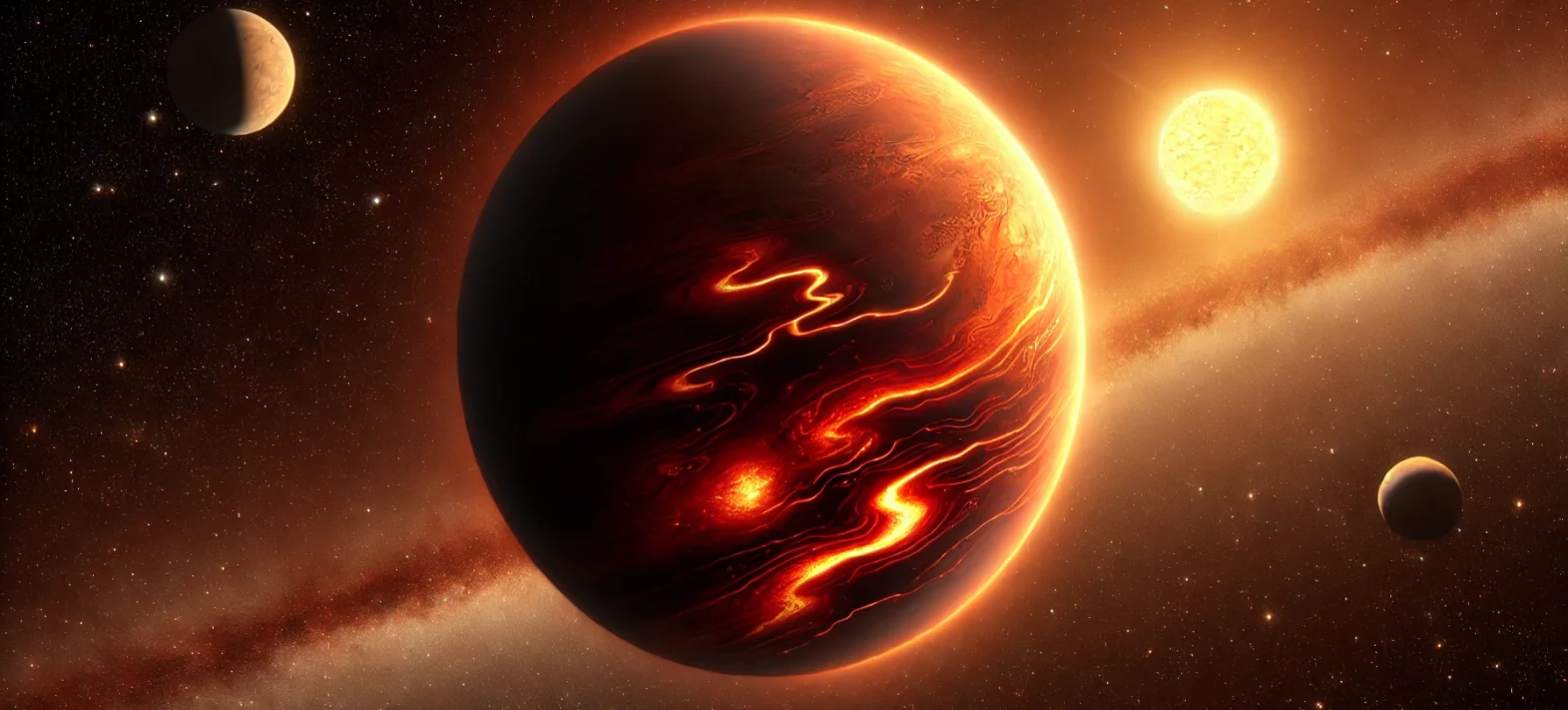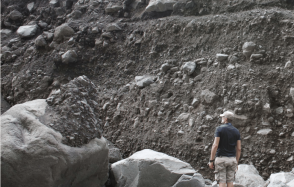A new machine learning model for predicting magma viscosity
A team of researchers led by Charles Le Losq (IPGP, IUF) has developed an innovative machine learning model capable of predicting the viscosity of magmas over a wide range of compositions, temperatures and pressures. This work represents a major advance in our understanding of magmatic processes, both on Earth and on exoplanets.

Molten magma on an exoplanet (generated by AI)
Latest news








